Genetics
-
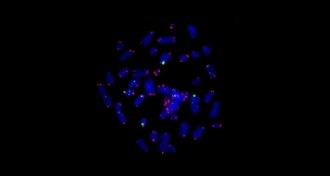 Health & Medicine
Health & MedicineChanges in kids’ genomes linked to chronic stress
In a study of 40 nine-year-old boys, kids from underprivileged backgrounds had telomeres that were 19 percent shorter than those of boys from more privileged environments.
-

-
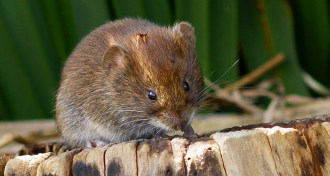 Genetics
GeneticsBank voles provide clue to prion disease susceptibility
A protein from bank voles makes mice susceptible to disorders that wouldn’t otherwise infect them.
-
 Genetics
GeneticsNeandertal legacy written in Europeans’ fat metabolism
DNA inherited from Neandertal interbreeding may have helped people adjust to Europe’s environment.
By Meghan Rosen -
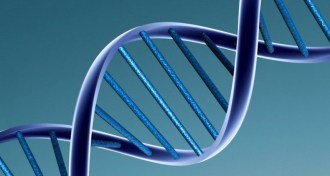 Genetics
GeneticsGene editing reverses liver disorder in mice
By editing a mouse's genes with bacterial proteins, scientists have reversed a rare liver disorder in the animal.
-
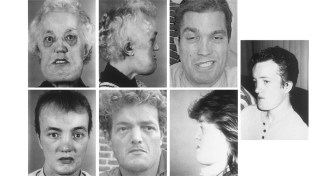 Health & Medicine
Health & MedicineThis rare skull-thickening disease led to a 3-D-printed replacement
A skull implant made with a 3-D printer replaced the 2-inch-thick skull of a Dutch woman with the rare van Buchem disease.
-
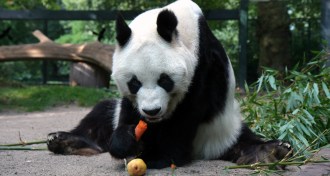 Animals
AnimalsGiant pandas like sweets, but prefer the natural ones
Despite sustaining themselves on bamboo, which isn't very sweet, giant pandas will indulge in a bit of sugar, if they can.
-
 Genetics
GeneticsMice lose a gene to drop some weight
Mice lacking gene have less fat, more muscle and lived longer than normal.
-
 Genetics
GeneticsEarly Polynesians didn’t go to Americas, chicken DNA hints
Contamination of ancient chicken DNA may explain previous report linking Polynesians to South America.
-
 Genetics
GeneticsGiant moa thrived before people reached New Zealand
Humans probably caused the extinction of giant wingless birds called moa in New Zealand, DNA evidence suggests.
-
 Life
LifeProtein linked to motor nerve cells being fast or slow
The protein, Delta-like homolog 1, is made in 30 percent of motor neurons and helps to determine at which speed the cells work, research shows.
-
 Genetics
GeneticsNeanderthal Man
The hottest thing in human evolution studies right now is DNA extracted from hominid fossils. Svante Pääbo, the dean of ancient-gene research, explains in Neandertal Man how it all began when he bought a piece of calf liver at a supermarket in 1981.
By Bruce Bower